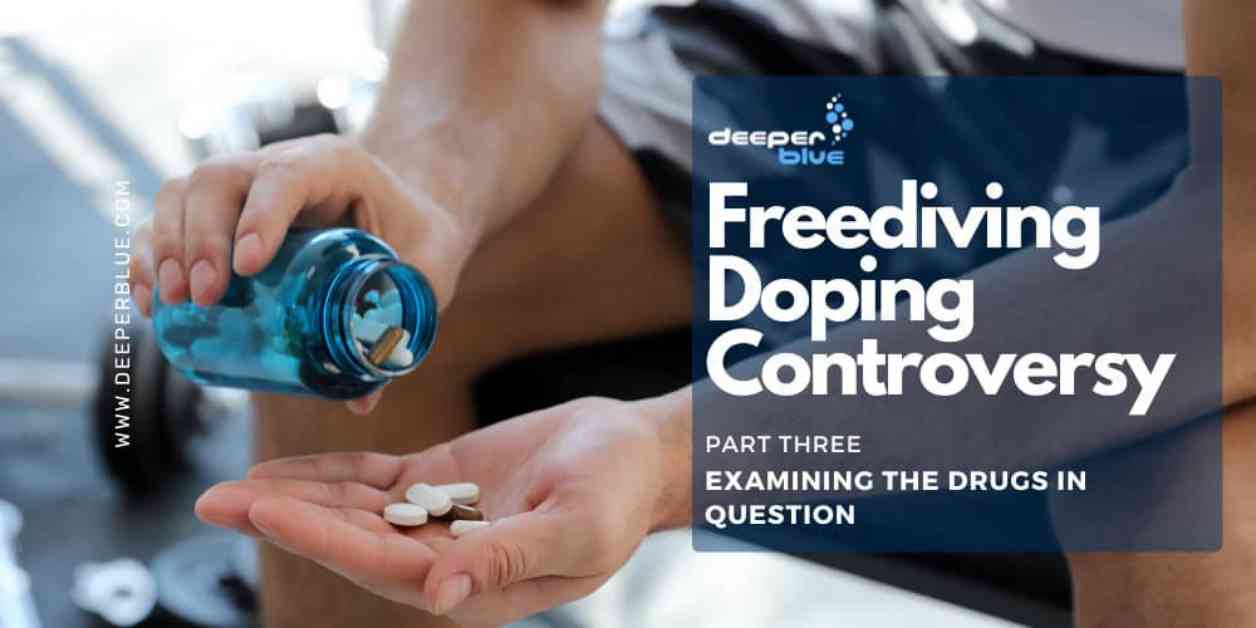**Freediving Doping Controversy Unveiled: Understanding Drugs in Question**
In the wake of the Vertical Blue 2023 luggage search involving Croatian freediving athletes Vitomir Maricic, Petar Klovar, and Sanda Delija, a heated debate emerged on social media and online platforms regarding the alleged performance-enhancing effects of the substances found in their possession. However, this controversy sheds light on a largely unexplored topic due to the limited scientific research available on the intersection of medications and freediving.
**Exploring WADA’s Prohibited List**
The World Anti-Doping Agency (WADA) annually updates its Prohibited List, which specifies substances and methods banned for use by athletes in and out of competition. This list undergoes continuous review to adapt to new scientific research and information from various sources. For a substance to be added to WADA’s Prohibited List, it must fulfill two out of three criteria: the potential to enhance sports performance, representing a health risk, or violating the spirit of sport as outlined in the WADA Code.
While some medications are essential for everyday functioning, certain drugs, including those like spironolactone, clomifene, and insulin, are listed on WADA’s Prohibited List due to their potential performance-enhancing effects in specific contexts. It is crucial for athletes to be aware of these banned substances and seek Therapeutic Use Exemptions (TUEs) when necessary to ensure fair competition and address underlying medical conditions.
**Diving into Alleged Substances Found**
During the luggage search at Vertical Blue 2023, four substances were allegedly discovered in the luggage of Croatian athletes Maricic and Klovar. These included sildenafil, diazepam, alprazolam, and furosemide. While only furosemide appeared on WADA’s Prohibited List for 2023 under the ‘Diuretics and Masking Agents’ class, the rest were included in Vertical Blue’s own list of prohibited substances.
**Insights from Vertical Blue’s Organizers**
William Trubridge, the event organizer of Vertical Blue 2023, shed light on the rationale behind creating an additional prohibited list for the competition. Concerns and suspicions surrounding the use of performance-enhancing substances, including benzodiazepines like Xanax and Valium, prompted the decision to include them in Vertical Blue’s doping policy and procedures.
Trubridge emphasized the potential performance-enhancing effects of substances like sildenafil, which were not initially listed but were later researched due to their possible benefits in hypoxic conditions. The collaborative efforts of medical professionals and research scientists informed the decisions regarding the inclusion of certain substances in Vertical Blue’s prohibited list.
**Clinical Studies on Sildenafil, Benzodiazepines, and Furosemide**
Research on sildenafil revealed its vasodilatory effects, which could benefit blood oxygen saturation at high altitudes but did not significantly impact exercise performance at lower altitudes. The pharmacist who reviewed these studies cautioned against assuming these benefits apply to underwater sports like freediving, which involve breath-holding rather than continuous breathing.
Studies on benzodiazepines indicated their potential to impair psychomotor performance and motor ability, particularly in athletic competitions requiring fine-tuning skills. Moreover, the risk of addiction and misuse associated with benzodiazepines raised concerns about their use in sports contexts.
Furosemide, a diuretic commonly used to manage fluid overload conditions, was found to have limited performance-enhancing effects in athletes and was primarily utilized for rapid weight loss in sports with weight categories. However, its potential to cause dehydration and electrolyte imbalances could pose risks to athletes, especially in sports like freediving.
**Insights from Medical Experts and Athletes**
Medical professionals specializing in pulmonary and diving medicine provided diverse perspectives on the use of furosemide for treating freediving-induced pulmonary syndromes. While some emphasized its potential in emergency situations to reduce pulmonary capillary pressure, others raised concerns about its impact on vasomotility and athletic performance post-dive.
Freediving athlete Vitomir Maricic shared his experiences and insights on the alleged substances found in their luggage, highlighting the medical necessity and prescription documentation behind their possession. Maricic underscored the importance of differentiating between substances used for legitimate medical reasons and those with potential performance-enhancing effects in the context of freediving.
**Final Reflections and Unanswered Questions**
The Freediving Doping Controversy at Vertical Blue 2023 underscores the need for evidence-based guidelines and policies to navigate the complex intersection of medications and athletic performance in freediving. Addressing grey areas, protecting athlete rights and privacy, and ensuring alignment with WADA’s anti-doping protocols are essential steps towards fostering fair competition and athlete safety.
As the series delves deeper into the events surrounding the VB2023 luggage search and doping control, lingering questions remain about the transparency, accountability, and ethical considerations surrounding the use of medications in competitive freediving. The final article of this series aims to provide further clarity on these events and address the unresolved issues in this contentious issue.
In conclusion, understanding the nuances of medication use in freediving, the implications of banned substances, and the ethical considerations surrounding performance-enhancing drugs are crucial for fostering a level playing field and upholding the integrity of the sport. It is imperative to strike a balance between medical necessity and preserving the spirit of fair competition in the evolving landscape of competitive freediving.
